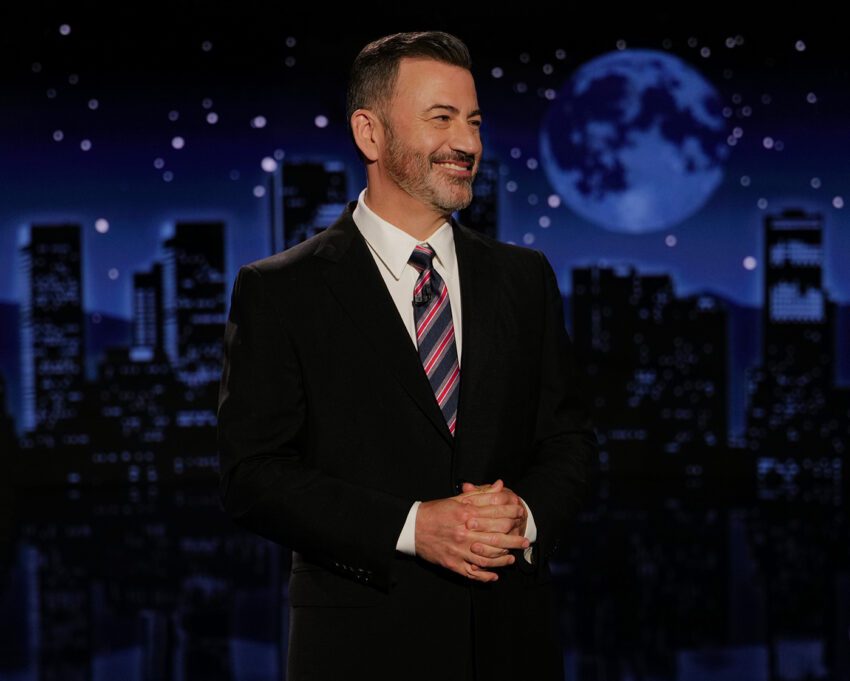
kimmel returns to television to mock fcc Jimmy Kimmel made a triumphant return to television on Tuesday night, addressing his recent and controversial removal from the airwaves while taking aim at Federal Communications Commission (FCC) Chair Brendan Carr.
kimmel returns to television to mock fcc
Kimmel’s Return and the Context of His Removal
After a brief hiatus, Kimmel’s comeback was marked by a monologue that directly confronted the circumstances surrounding his censorship. The comedian’s absence from the airwaves had sparked significant discussion about free speech and the role of government in regulating content. Kimmel’s removal was not universal; it affected only certain cities, raising questions about the criteria used for such decisions.
During his opening remarks, Kimmel emphasized the importance of free speech in a democratic society. He recounted conversations with comedians and talk show hosts from countries with authoritarian regimes, who shared their experiences of censorship and the dangers of speaking out against oppressive governments. Kimmel’s anecdotes served to underline the gravity of his situation, framing it as part of a larger conversation about the freedom of expression in the United States.
Brendan Carr: The Man Behind the Controversy
Brendan Carr, the FCC Chair, has been a polarizing figure in the realm of telecommunications policy. Appointed by former President Donald Trump, Carr has often been at the center of debates regarding net neutrality and media regulation. His recent actions against Kimmel have drawn ire from various quarters, including media advocates and free speech organizations.
In his monologue, Kimmel did not shy away from naming Carr, directly criticizing the FCC Chair for his role in the incident. The comedian’s willingness to confront Carr head-on reflects a broader trend among entertainers and public figures who are increasingly vocal about issues of censorship and government oversight.
The Sketch Featuring Robert De Niro
In a later segment of the show, Kimmel escalated his critique of Carr through a comedic sketch featuring actor Robert De Niro. De Niro portrayed an unnamed FCC Chair, occupying Carr’s office and embodying the absurdity of the situation. The sketch served as both a humorous take on the seriousness of censorship and a pointed critique of Carr’s actions.
The choice of De Niro, a veteran actor known for his roles in films that often critique authority, added a layer of gravitas to the sketch. Kimmel’s use of humor to address a serious issue is a hallmark of his style, allowing him to engage viewers while also provoking thought about the implications of censorship.
The Implications of Censorship
Kimmel’s return and his focus on censorship raise important questions about the implications of government intervention in media. The incident has sparked discussions about the boundaries of free speech and the responsibilities of public figures in addressing these issues. Many advocates argue that censorship undermines the democratic principles upon which the United States was founded.
Moreover, Kimmel’s situation highlights the precarious nature of media freedom in the current political climate. As government officials increasingly scrutinize content, the risk of self-censorship among creators may grow. This could lead to a chilling effect, where individuals refrain from expressing their views for fear of repercussions.
Stakeholder Reactions
The reactions to Kimmel’s return have been varied. Supporters of free speech have lauded his willingness to confront Carr and address the issue of censorship openly. Many see Kimmel as a champion of free expression, using his platform to advocate for the rights of creators and entertainers.
Conversely, some critics argue that Kimmel’s monologue and subsequent sketch trivialize the complexities of media regulation and the role of the FCC. They contend that while free speech is vital, there are also responsibilities that come with it, particularly for public figures who influence public opinion.
The Role of the FCC in Media Regulation
The Federal Communications Commission plays a crucial role in regulating communications in the United States, overseeing television, radio, and internet services. Its mission includes promoting competition, innovation, and investment in broadband services while protecting consumers. However, the agency’s actions can also lead to contentious debates about censorship and the limits of free expression.
In recent years, the FCC has faced scrutiny over its stance on net neutrality and media ownership rules. Critics argue that the agency’s policies can disproportionately affect smaller media outlets and independent creators, leading to a homogenization of content. Kimmel’s experience serves as a reminder of the delicate balance the FCC must maintain between regulation and freedom of expression.
Historical Context of Censorship in the U.S.
Censorship has a long and complicated history in the United States, often surfacing during periods of political unrest or social upheaval. From the Alien and Sedition Acts of the late 18th century to the McCarthy era of the 1950s, the government has at times sought to suppress dissenting voices. Kimmel’s situation can be viewed as part of this ongoing struggle over the boundaries of free speech.
In contemporary society, the rise of social media and digital platforms has further complicated the landscape of free expression. While these platforms have democratized content creation, they have also led to new forms of censorship, often driven by corporate interests or government regulations. Kimmel’s return to television serves as a reminder of the need for vigilance in protecting free speech in all its forms.
Conclusion: The Importance of Vigilance in Protecting Free Speech
Kimmel’s return to television is not just a personal victory; it is a significant moment in the ongoing conversation about free speech and censorship in America. By addressing his removal directly and critiquing FCC Chair Brendan Carr, Kimmel has opened the door for broader discussions about the role of government in regulating media and the importance of protecting the rights of creators.
As the landscape of media continues to evolve, it is essential for public figures, advocates, and citizens alike to remain vigilant in defending free speech. Kimmel’s experience serves as a powerful reminder that the fight for expression is ongoing, and that the voices of comedians, entertainers, and everyday citizens are vital in shaping the future of free expression in the United States.
Source: Original report
Was this helpful?
Last Modified: September 24, 2025 at 11:35 am
4 views















